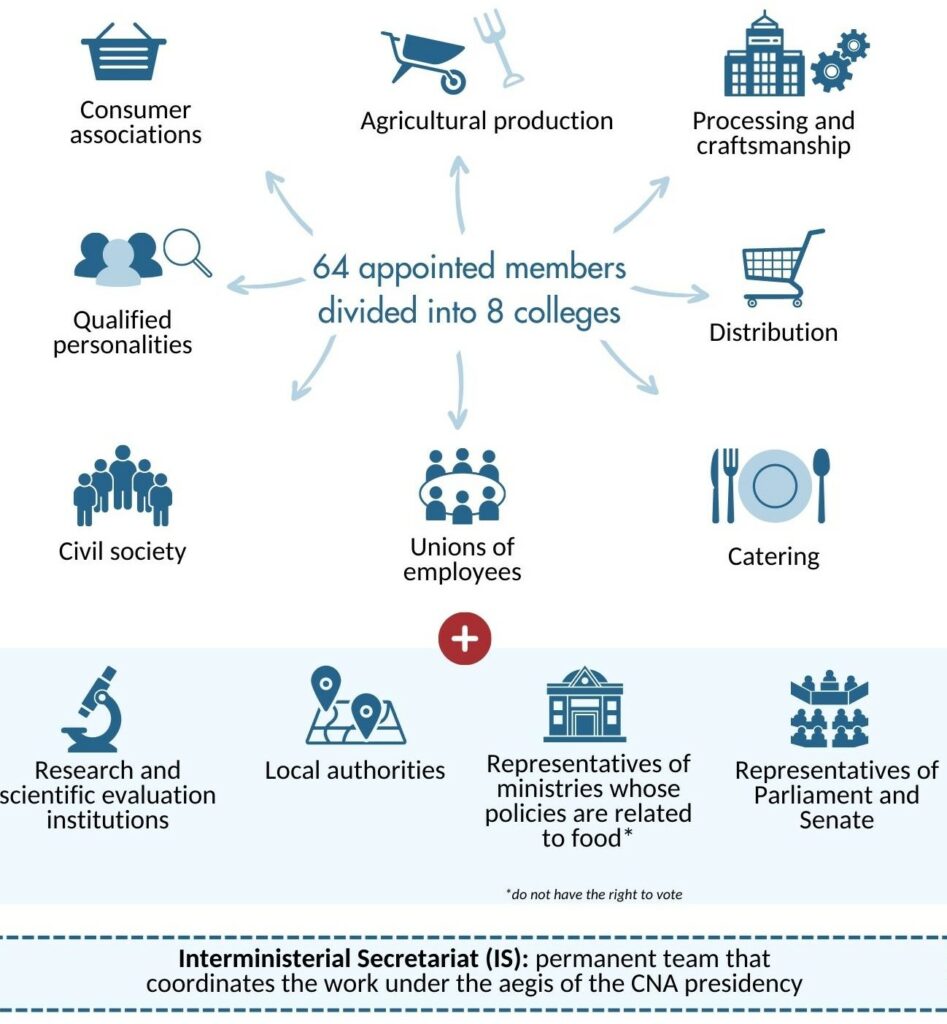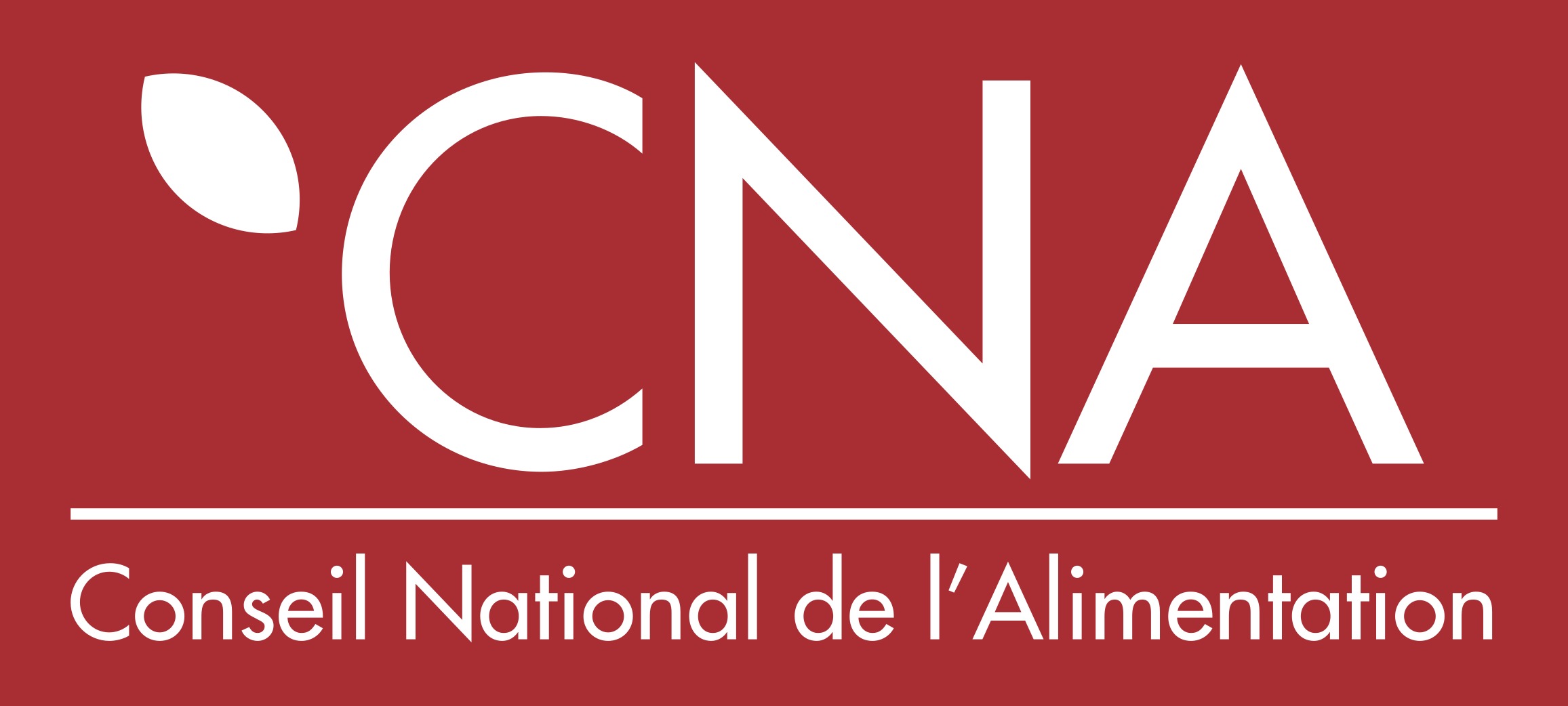The NFC
Created by decree in 1985, the « Conseil National de l’Alimentation » (French National Food Council) is an independent advisory body that reports to the ministries responsible for the environment, health, consumption, and agriculture.
It is consulted on the definition of public food policy and provides its opinions to decisionmakers in government and agents in the food sector.
In particular, it can be consulted on the main thrusts of policy in relation to:
Food parliament
Positioned as a “food parliament”, the NFC has for more than 40 years developed a consultation process that incorporates the concerns of society and of areas of the economy. Discussions take account of the realities of the professional world and consumer expectations. The NFC also has a mandate to incorporate guidelines for citizen participation in its activities.
For the 2023-2025 mandate, the NFC is led by Laurence MAILLART MEHAIGNERIE, member of Parliament (députée) for the 2nd constituency of Ille-et-Vilaine and member of the Development Committee.
The four ministries to which the NFC reports participate in the preparation of the opinions of the NFC in order to provide clarification and expertise. The administration does not vote on opinions: in fact, ministries neither approve nor disapprove of the opinions and recommendation set out in the opinions.
The government is not bound by the opinions of the NFC. The purpose of the consultation organised by NFC is to issue recommendations. An NFC opinion is a collective document, the result of the participation of members of a consultation group and of the interdepartmental secretariat. It is published once adopted at the plenary session of the NFC. It is aimed at players in the food sector, in particular public authorities, to enrich public decision-making and incorporate the opinions of various stakeholders.
Since its creation in 1985, the CNA has issued 92 opinions. The newest ones concern Food and health (2018) ; Food education (2019) ; Plastics for fruits and vegetables (2020) ; Feedback of Covid-19 crisis (2021) ; New Food Behaviors (2022) ; Preventing and fighting food inscurity (2022).
Members

